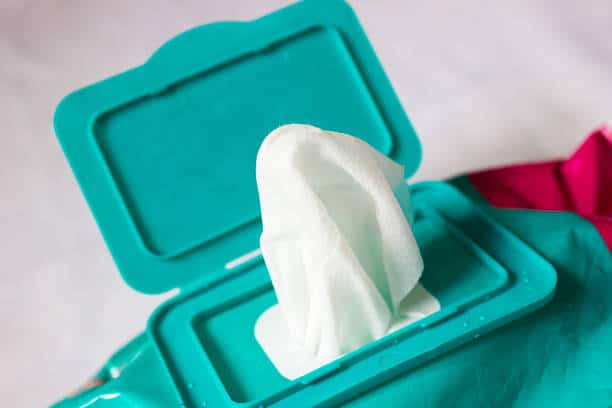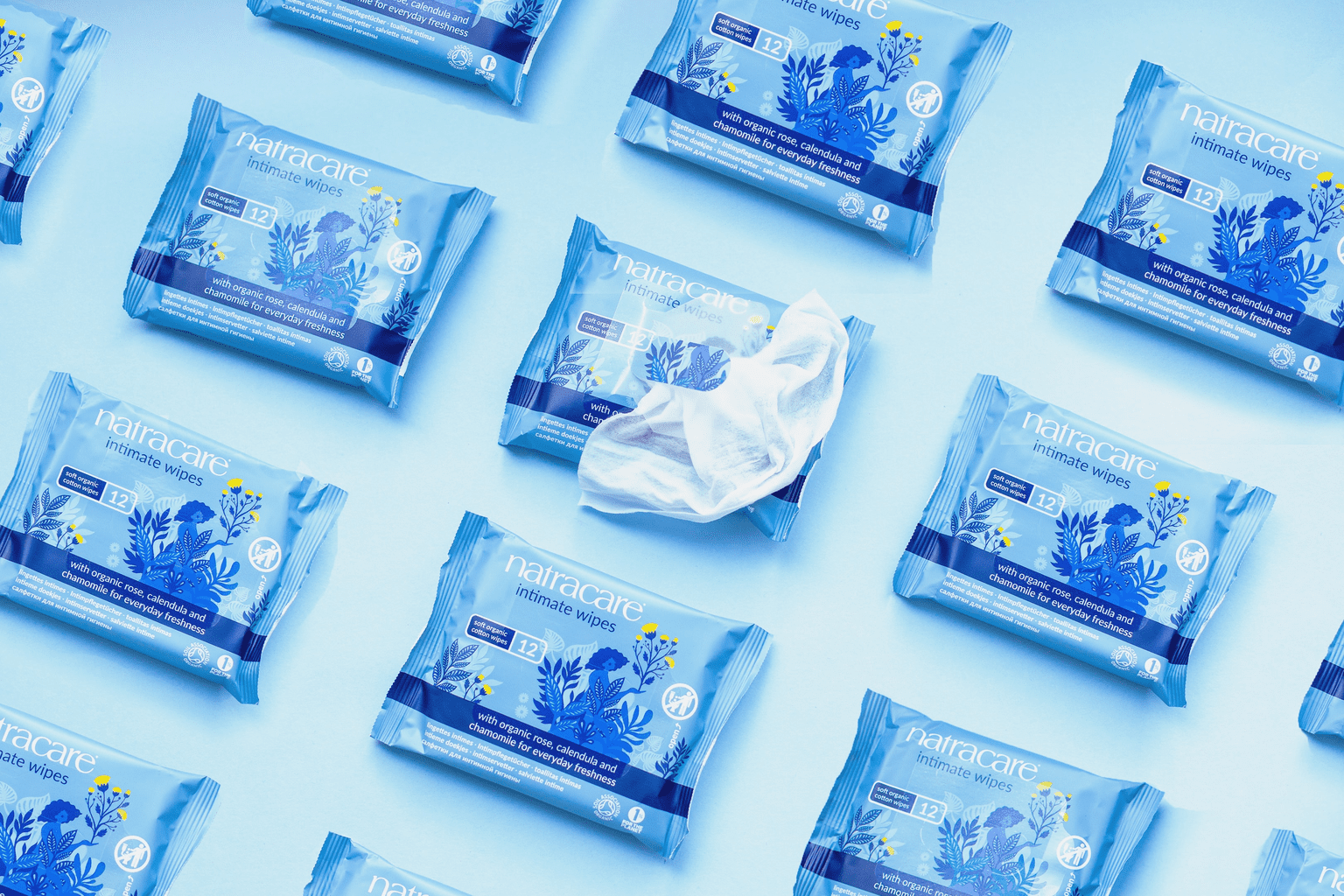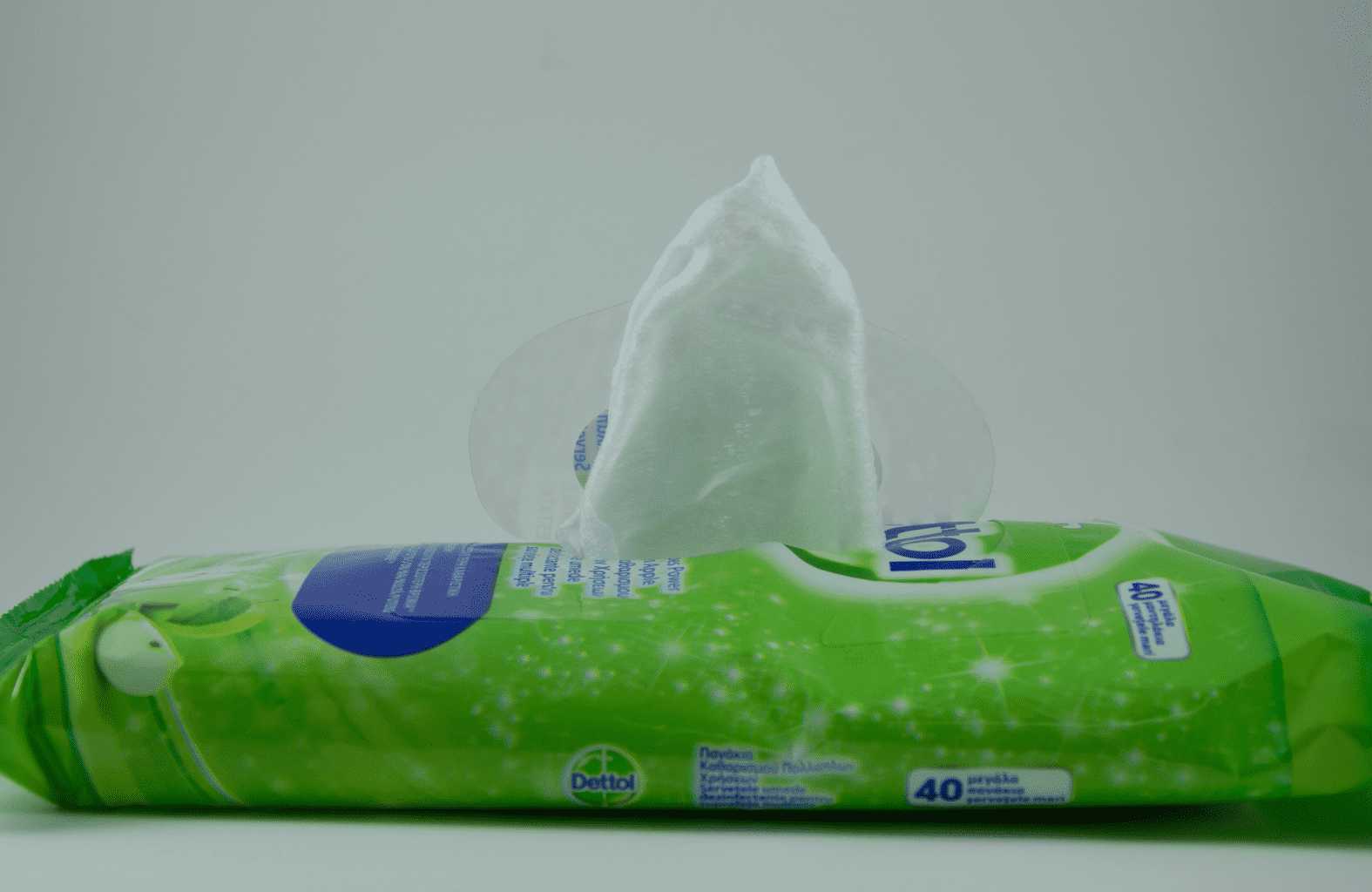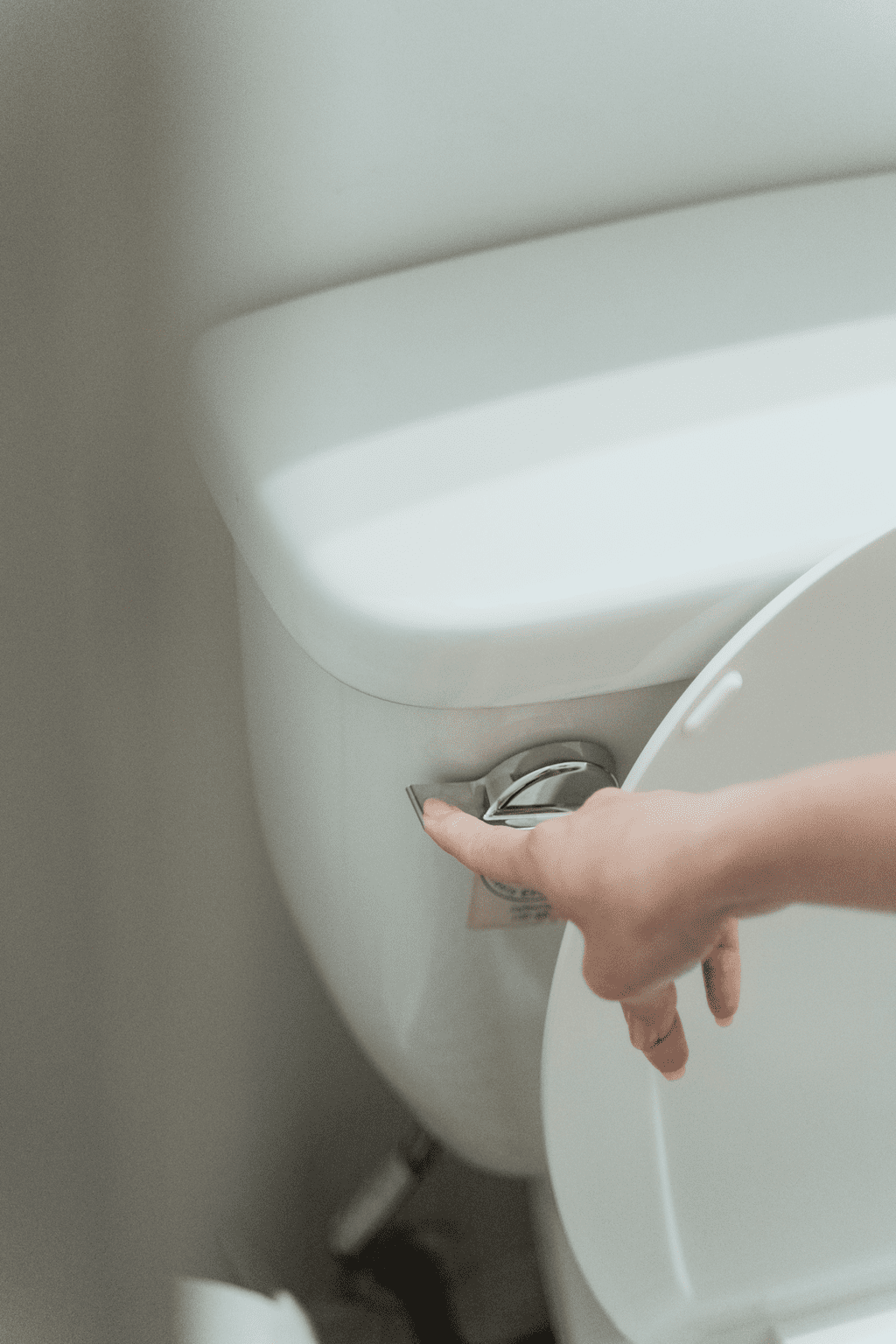Baby wipes are so versatile that almost everyone uses them in their homes; you can use them for anything from changing your baby to picking up almost any waste.
Because of the versatility and widespread usage of baby wipes, accidents can happen, and someone could accidentally toss a wipe down the toilet without even realizing it.

So, can you flush baby wipes?
You can visually flush baby wipes in the toilet. However, just because you can visually do it doesn’t mean you should, as that could create major plumbing problems.
Read to learn more about flushing baby wipes and how that affects your household plumbing system.
Should You Flush a Baby Wipe Down The Toilet?
Many people worldwide throw baby wipes down the toilet, mostly unintentionally, as they’re unaware of the damage wet wipes can cause.

Multiple baby wipe manufacturers showcase their wet wipes as flushable, making us think they are almost like wet toilet paper. However, that description isn’t completely accurate, as baby wipes need more time to break down in the pipes.
Because of that, even flushable baby wet wipes, which are supposed to be safe for use, are not safe. As they take a lot of time to dissolve, they could quickly block sewer pipes, and you risk the sewage flowing back to your home, which would be inconvenient.

This is just one example of all the plumbing issues baby wipes can cause.
What Happens In Your Homes Septic Tank System When You Flush Baby Wipes?
When flushing baby wet wipes, you could easily cause a baby wipe clog inside the sewer pipes. If that happens, you will cause plumbing issues in other sewer systems around you, and you could endanger the community septic tank.
Reasons Why You Shouldn’t Flush Baby Wipes
You shouldn’t flush baby wipes because of the reasons below.
They Don’t Break Down In the Water
Most baby wipes contain chemicals and synthetic materials that prevent the wipes from dissolving in the pipes. The issue is they will go through your toilet without any issues. However, the problems come with time.
While toilet paper needs around 24 hours to dissolve, baby wipes can remain in your home’s septic tank system for months. As they don’t break down, the wipes eventually cause a clog in the sewer system.
They Can Damage the Community’s Sewer
Supposedly you flush wet wipes, and they pass through your drains without making a clog. They would reach both your sewer and the community sewer system because, instead of causing a clog in the drains, the baby wipes would make a clog in the septic tank.
There’s no way to dissolve baby wipes, so they remain inside the sewer while their amount keeps increasing.
They Can Cause the Fatberg Effect
For those who haven’t heard about the fatberg effect, it’s a condition when every wet wipe stuck inside the septic system can connect with dirt, grease, and fat to make a fatberg. It’s a mass formation that resembles an iceberg.
As these formations don’t have an exit from the drains, they’ll remain stuck inside.
So, if you use a lot of wet wipes, you could potentially cause the fatberg effect, resulting in costly repairs.
Things You Should Never Flush Down the Toilet
Besides flushing toilet paper and bodily fluids, you shouldn’t flush anything else down your toilet. Flushing inappropriate items can create major problems and cause sewage issues for entire communities.

That’s why you need to remember to never flush synthetic materials and common child-related items like:
Baby wet wipes
Wet wipes
Tissues
Cotton buds
Diapers
Remember it’s only safe to flush:
Bodily fluids
Toilet paper
Is There a Way To Protect Your Home and Toilet From Wet Wipe Clogs?
Most wet wipes will make an issue in your drains; you can protect your home and toilet by placing toilet locks which will prevent things like baby wipes and paper towels from getting stuck in your drains.
Adding toilet locks is essential for homes with kids, so if you’re a parent, consider purchasing these for your own safety and environmental protection.
Conclusion
Baby wipes are excellent for getting your baby clean, but that doesn’t mean you should flush them. They can cause a bunch of different issues in your drains, which is why you should avoid tossing them in the toilet.
Instead, use toilet locks, or simply stop the habit of tossing them down the drain. Also ensure you respect the plumbing needs of your home and practice regular maintenance to keep your pipes functioning, and your toilet and sewage clog-free.
